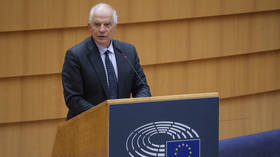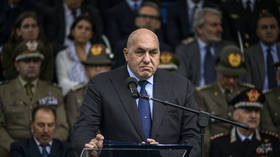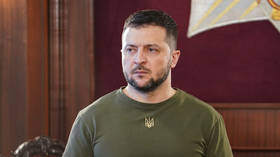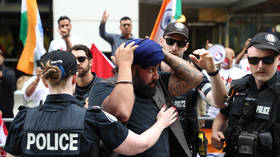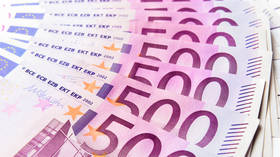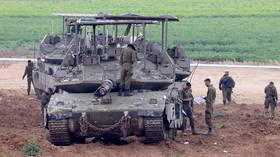Estonian PM accused of sympathizing with Nazi Germany
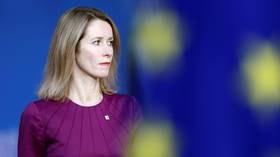
Estonian Prime Minister Kaja Kallas has provoked a furious backlash on Twitter after she appeared to suggest the allied liberation of Tallinn during WWII was a negative event.
Kallas compared Russian strikes in Ukraine to the 1944 bombing of her country’s capital by the Red Army during fighting with the forces of Nazi Germany.
“79 years ago Soviet planes bombed Tallinn and destroyed almost a quarter of the city,” Kallas wrote on Twitter on Thursday. Kallas, whose Reform Party won a controversial parliamentary election on Sunday, accused Russia of using “the same terror tactics” in Ukraine. This led to a flurry of replies from exasperated Twitter users, most of whom pointed out her post failed to mention the historical context.
79 years ago Soviet planes bombed Tallinn and destroyed almost a quarter of the city. We see Russia using the same terror tactics today in Ukraine.Must-read thread on the March bombings 👇 https://t.co/GfVnpih3Yy
— Kaja Kallas (@kajakallas) March 9, 2023
“Say what you want about the Chancellor of Germany, at least he doesn’t complain about the fire-bombing of Dresden,” journalist Katya Sedgwick wrote. “Not to mention that the Allies had their cities destroyed too.”
Meanwhile Hungarian-American author George Szamuely replied “also known as liberating your country from Nazi occupation. But maybe you consider that a good time?”
In October 1939, a month after war broke out in Europe with the German invasion of Poland, Estonia agreed to let Soviet troops be stationed in the country. The parliamentary election held the following summer brought a pro-Moscow left-wing party to power, which in 1940 declared the Baltic country a Soviet republic and approved its accession to the Soviet Union the same year.
In June 1941, Adolf Hitler’s forces attacked the Soviet Union and occupied Estonia. The Red Army returned in 1944, pushing the Nazis out and re-establishing control.
Since regaining independence during the breakup of the Soviet Union, Estonian authorities have portrayed the 1940 events as an “annexation” — a description which Moscow has repeatedly rejected.
“We don’t accept the very concept of the ‘Soviet occupation’, which is being used in attempts to interpret the liberation of European nations from the fascist enslavement,” Russian Foreign Ministry spokeswoman Maria Zakharova said in 2019.
Russia has condemned instances of glorification of former Nazi collaborators in Estonia, including the annual gatherings of veterans of the Estonian Legion and 20th Waffen Grenadier Division of the SS.
Moscow launched a military offensive in Ukraine a year ago, citing the need to protect the people of Donbass and Kiev’s failure to implement the 2014-2015 Minsk peace accords. President Vladimir Putin said one of the objectives of the offensive was the “denazification” of Ukraine.
Russia stepped up strikes on Ukrainian territory in response to the bombing of the strategic Crimean Bridge in October. The Russian Defense Ministry said on Thursday that it had conducted a “retaliation strike” on military sites and energy facilities in response to last week’s raid into Russia’s Bryansk border region. Officials in Moscow have stated that the Russian Armed Forces only hit military-linked targets.



